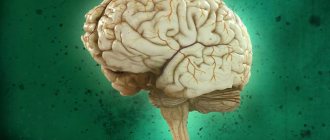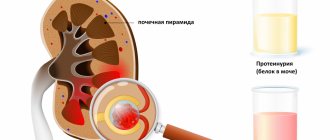A LITTLE THEORY
Cortisol is a hormone belonging to the group of glucocorticoids that have a powerful anti-stress and anti-shock effect.
Its main function is to adapt the body to stress, injury, shock, and to mobilize strength to overcome danger. But besides this, cortisol controls physical activity, blood pressure, our sleep, hunger, digestion, and physical activity. It is actively involved in carbohydrate, fat and protein metabolism, and affects the water-salt balance. Cortisol is also responsible for preserving energy in the body, participates in the synthesis of cellular enzymes, and accelerates the removal of toxins.
What is cortisol responsible for?
Cortisol is a hormone that has gotten a bad rap. Thus, it is often blamed for insomnia, fat accumulation and the destruction of muscle mass. The hormone does have this effect, but only if it is produced in too large quantities. In moderation, it is vital for our body. Its main task is to adapt the body to changing environmental conditions.
Cortisol performs several important functions in our body:
- regulates blood glucose levels;
- supports the nervous system;
- activates brain activity;
- controls blood pressure;
- protects against infections.
It is under the influence of cortisol that gluconeogenesis occurs - the process of glucose formation in the liver. That is, the hormone is responsible for providing the body with the energy necessary for life. In a healthy person, the highest concentration of cortisol is observed in the morning. That is why in the morning we feel cheerful and full of energy. In the evening, hormone production gradually decreases, and with it our productivity drops, we feel tired and quickly fall asleep.
Normally, a healthy adult produces cortisol in amounts ranging from 15 to 30 mg per day.
HOW DOES HE WORK?
Cortisol sends glucose to the muscles so that they can cope with stress, saving us from danger. In this way, it mobilizes the body’s reserves in stressful situations (remember those cases when fragile women showed remarkable strength in order, for example, to save their child).
But if there was stress, but no physical activity (for example, stress from bad news, a quarrel with your husband, or a pressing deadline for completing a project), then glucose is not consumed in the muscles, and little remains in the blood. Then a person experiences a strong craving for sweets - this is how the body strives to increase blood sugar levels. This explains the “eating” of stress. When stress becomes constant and background, it causes the risk of developing obesity and diabetes.
Cortisol helps block allergic reactions. Drugs that relieve anaphylactic shock in severe allergies contain a synthetic analogue of cortisol. And at the same time, it suppresses the body's immune responses, reducing its defenses and provoking inflammation.
Cortisol increases heart rate, causing an increase in blood pressure and at the same time controls vascular tone, keeping blood pressure at a normal level.
Elevated cortisol levels lead to protein breakdown. Thereby destroying muscle tissue and blocking collagen synthesis, which leads to sagging skin and muscles, early wrinkles and aging.
It is cortisol that wakes us up in the morning, allowing us to wake up alert, active and ready for accomplishments. Violation of cortisol levels leads to the fact that a person wakes up after 8 hours of sleep broken and empty.
During times of stress, cortisol increases diuresis (acts as a diuretic), so an anxious person may suddenly want to go to the toilet. In addition, severe stress increases the secretion of gastric juice, leading to the development of stomach and duodenal ulcers.
Cortisol takes part in metabolism. Elevated levels of the hormone cause a particular type of obesity, where fat accumulates in the inner cavity of the abdomen, under the muscles, rather than under the skin. A large hanging belly is formed, which is called the “cortisol belly.”
Cortisol is an important hormone, but increasing its circulation in the blood is only permissible during short-term stress, such as competitions or exams.
When we talk about impaired cortisol levels, we most often mean elevated levels.
Exercise regularly
Exercise can either increase or decrease cortisol levels, depending on the duration and intensity of the exercise. Despite the benefits of playing sports, it is still a burden and stress for the body. Therefore, as a result of intense exercise, cortisol usually rises briefly, but then falls at night.
At the same time, moderate-intensity exercise does not lead to an increase in stress hormone levels. Like intense exercise, moderate exercise is associated with decreased nighttime cortisol levels.
How exercise improves microbiota
Regular exercise can help control cortisol levels. And in addition to reducing the stress hormone, sport has a good effect on the microbiota. But it's best to avoid strenuous evening workouts that will keep you awake. Physical activity isn't just good for your body—many doctors recommend it for improving your mental health, too.
SIGNS OF HIGH CORTISOL LEVELS
- sudden weight gain;
- fat deposits are especially concentrated on the face, abdomen, chest, back, while the arms and legs are quite thin;
- the face changes, becomes round, moon-shaped;
- bright blush;
- chronic fatigue, weakness;
- nervousness, depression;
- insomnia;
- increased heart rate at rest;
- digestive problems (bloating, constipation, diarrhea);
- increased sweating;
- frequent urination;
- brittle bones;
- potency disorders and decreased libido in men;
- infertility;
- male pattern hair growth in women;
- red stretch marks on the skin;
- back pain;
- weakening of the thyroid gland.
Root Causes of High Cortisol
An increase in the hormone in the bloodstream can be caused by excessive activity of the adrenal glands. In some cases, upward changes are created artificially, using medications. Medicines are used to treat pathological processes not associated with damage to the adrenal glands or endocrine department.
If independent production of cortisol by the body is noted, the patient undergoes a diagnostic examination for the presence of the following diseases:
- Itsenko-Cushing's disease;
- insufficient production of ACHT and pituitary dysfunction - a deviation can occur with regular use of artificial hormone substitutes or its additional production by abnormal cells;
- pathological processes in the adrenal glands caused by benign or malignant neoplasms (carcinoma, adenoma) or tissue proliferation.
The functional type of increase in cortisol is provoked by:
- period of pregnancy and breastfeeding;
- puberty;
- depressive and stressful conditions;
- cirrhosis, hepatitis, liver failure;
- ovarian cysts.
The pathological condition is observed in overweight or underweight people suffering from chronic alcohol dependence.
WHAT INCREASES CORTISOL LEVELS?
- the first and most important thing is chronic stress;
- sedentary lifestyle;
- bad eating habits;
- frequent consumption of coffee;
- disturbance of sleep rhythm (late going to bed, night shifts, habit of watching TV series late into the night, sitting on social networks).
Prolonged high cortisol levels lead to a domino effect: the adrenal glands produce cortisol like crazy, and the rest of the hormones cascade down.
And a person ages, the skin sags, the hair becomes dull, the muscles become weak and flabby, sex ceases to be enjoyable. Brain functions decrease and a person becomes dull, forgets how to rejoice, memory deteriorates - all this ultimately leads to senile dementia - Alzheimer's disease.
We don’t think about this in our youth, when we pour liters of coffee into ourselves after a sleepless night, snacking on it all with a sweet bun, promising ourselves that someday we will do yoga, but we never fulfill our plans. And the beginnings of this disease are laid decades before its manifestation.
Learn to recognize thoughts that cause stress
Thinking about negative and traumatic events is a trigger for the synthesis of cortisol. British scientists conducted a study in which participants wrote down their most negative memories for 20 minutes over three days. The results showed that it caused high cortisol levels in participants. Scientists link this to long-term consequences for the entire body.
The scientific community also highlights the role of worry and dwelling on negative thoughts in stress levels. It has been proven that negative thinking not only increases cortisol levels, but also has a negative effect on the production of oxytocin, a hormone that calms the nervous system.
Mental practice or mindfulness is one way to combat negative thinking and helps reduce cortisol levels. Hungarian scientists conducted a meta-analysis of ten studies on the connection between meditation and stress hormone levels. The results showed that meditation has a positive effect on people living in stressful conditions, but especially on patients with depression and post-traumatic stress disorder.
HELPS TO REDUCE CORTISOL LEVELS
- limiting the amount of fast carbohydrates in the diet (sweets, white bread, refined cereals, potatoes, semi-finished products);
- minimize the consumption of coffee and tea;
- to give up smoking;
- go to bed before 22:00;
- regular moderate exercise (ideally yoga, qigong, walking);
- Meditation is especially effective.
We all remember the concept of the body's "flight or fight" response to stress. Today, scientists come to the conclusion that this reaction is more characteristic of men. In women, stress more often triggers the “care and befriend” response.
Unable to cope with stress, men often turn to alcohol to escape unbearable tension. They, much more often than women, suffer from heart disease, strokes, and die earlier - these are the results of constant stress.
Women under stress seek communication and company, which is not typical for men. Women do not produce less cortisol than men, but they do produce much more oxytocin - the hormone of affection, affection, relaxation and well-being. Oxytocin neutralizes stress hormones, including cortisol. The level of oxytocin increases when we hug, kiss, stroke each other, caress a pet, have a warm, gentle conversation with a loved one, visit a spa, or lie down for a relaxing massage.
Of course, in the face of a serious threat, women also run, can fight, or try to escape their worries into alcohol, but this is not their most important instinct, unlike men.
REDUCED CORTISOL LEVELS
May indicate serious illness.
Signs of low cortisol levels:
- one of the main ones is increased pigmentation of the skin in folds, places of friction with clothing, on the nipples, in the corners of the mouth, in the armpits, around the anus, etc.;
- hypotension - persistently low blood pressure;
- dizziness, fainting;
- increased heart rate;
- strong craving for salty foods;
- weight loss;
- menstruation becomes scanty, until it stops completely;
- dry skin, brittle hair and nails;
- weakness, fatigue;
- atrophy of the mammary glands, in men - atrophy of the testicles, seminal vesicles, prostate;
- development of neoplasms in various organs.
Cortisol levels decrease because the adrenal glands do not produce enough cortisol. Why is this happening?
- Addison's disease, or primary adrenal insufficiency, is a disease in which the adrenal glands are damaged and cannot produce the right amount of cortisol. In this case, the adrenal glands are damaged due to tuberculosis or adrenal cancer, infection, autoimmune disease or hemorrhage.
- Secondary adrenal insufficiency - the adrenal glands are healthy, but the pituitary gland, which controls them, is not functioning properly. Or the connection between them is broken. In this case, the adrenal glands do not receive the correct signal about the required amount of cortisol.
- Adrenal fatigue syndrome - the adrenal glands are not damaged, but cannot produce cortisol because they were working in overload mode and are now unable to fully cope with their task. This occurs due to long-term severe stress, severe emotional trauma, sleep disturbances and poor nutrition.
Laugh more often
Laughter is good not only for the soul, but also for the body. It is a natural way to overcome stress and reduce cortisol levels. A study published in 2008 showed that even the anticipation of laughter leads to a decrease in blood levels of cortisol, as well as two other stress hormones - adrenaline and norepinephrine.
Laughter not only reduces stress hormone levels, but also blood pressure.
If you are having a fun and interesting time, you are unlikely to experience extreme stress at the same time. That's why it's so important to plan your time and visit interesting places and events.
HOW TO INCREASE CORTISOL LEVELS?
To avoid hormone replacement therapy, let's turn to natural ways to restore normal adrenal function:
- Regular meditation is the most effective way to cope with stress;
- a clear sleep schedule - go to bed at the same time, no later than 22:00;
- regular yoga, qigong, walking;
- proper nutrition;
- refusal of caffeine, alcohol;
- limiting sugar, semi-finished products, processed products.
WHAT TO DO?
As you can see, the recommendations for low cortisol levels are the same as for high cortisol levels.
But it couldn’t be otherwise. After all, the body is an amazing structure. It recovers itself, you just need to create conditions for it to work normally and remove harmful factors.
It is important to remember that hormones work as a team and greatly influence each other. The entire body is a finely structured interacting and interconnected system that cannot be viewed from only one point of view. Restoring destroyed hormonal balance naturally is possible only with an integrated approach that will include all aspects of health - nutrition, breathing, physical activity, cleansing procedures, restoring mental balance, working with consciousness.
All this is harmoniously combined in the Hormonal-Genetic Reboot (HGR) program, which has been successfully carried out by our centers in the cities of Moscow, Samara, Omsk and Sochi for the 5th year, and now also in online format. Leave a request to participate in the next stream of the program and our care service will contact you.
In the case of a serious illness that causes damage to the adrenal glands, an integrated approach is required, a change in lifestyle in general, the development of an individual treatment plan, which, in addition to HGP, necessarily includes the practices of Tibetan Natural Healing, massage of internal organs, and acupuncture.
Causes of abnormal cortisol levels
Changes in hormone levels can be provoked by:
- amphetamines;
- vasopressin;
- hormonal contraceptives;
- interferon;
- corticotropin;
- metoclopramide;
- methoxamine;
- naloxone;
- nicotine;
- estrogen;
- ethanol
Increased concentration is recorded with excessive consumption of alcohol and tobacco products. A reduced amount of cortisol occurs due to the presence in the body of:
- barbiturates;
- dexamethasone;
- ketoconazole;
- levodopa;
- lithium-based drugs;
- morphine;
- nitrogen oxides;
- magnesium sulfate;
- triamcinolone;
- ephedrine.
When changes in hormonal balance are detected, the search for the source of dysfunction begins.
CASE FROM PRACTICE
A woman came to the GGP program in an extremely stressful state. She was constantly anxious and tense due to stress at work. Only alcohol helped her cope with such a load. She simply could not calm down her excitement and fall asleep without a couple of glasses.
An important part of the program is meditation, which participants receive in recordings and have constant access to.
During the program, our client’s condition changed dramatically due to nutrition, physical activity and the entire system in general. But the main discovery and powerful healing tool for her was meditation.
This woman shared with us that she stopped drinking alcohol and started meditating every time she felt an impending wave of tension. She became much calmer, changed in appearance - younger, fresher. She returned to full, refreshing sleep. She learned to smile again and enjoy all manifestations of life.











